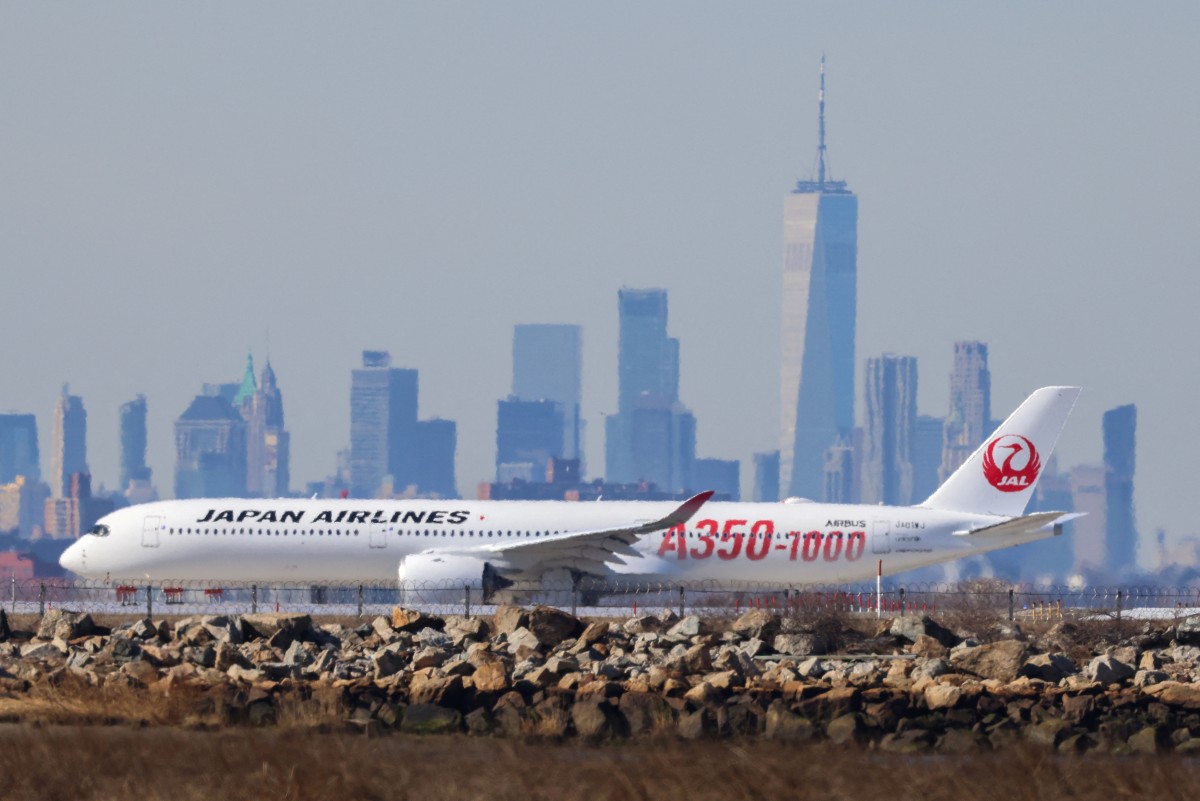New Delhi, India — Indian airline IndiGo said on Sunday it had signed an order for 30 more Airbus A350-900s, bringing its shopping list for the widebody aircraft from the European aircraft manufacturer to 60.
“We are placing a firm order for 30 Airbus A350-900s,” said Pieter Elbers, the CEO of IndiGo, which was founded in 2006 and is behind the largest contract by volume in the history of civil aviation — 500 Airbus single-aisle aircraft by 2023.
The low-cost carrier, India’s biggest by market share, is positioning itself as a significant player in the long-haul market.
“This strategic move will enable IndiGo to spread its wings further and expand its long-haul international network,” the company said in a statement.
“This is yet another step in defining the airline’s long-term plans of international expansion.”
Benoit de Saint-Exupery, Airbus commercial aircraft vice-president of sales, hailed “IndiGo’s incredible rise”.
“You have democratized flying in India, and now you want to expand internationally,” he said.
The A350 planes, with ranges of up to 15,000 kilometers (9,300 miles), will allow it to expand its network further.
Overall, IndiGo has placed orders for around 1,000 aircraft from the A320 family, Airbus’s most successful model and rival of the Boeing 737 MAX, which has endured multiple setbacks after a series of safety scares.
‘Phenomenal’ engge
Willie Walsh, director general of the International Air Transport Association (IATA), which began its annual industry conference in New Delhi on Sunday, said “the development of India’s air connectivity in recent years has been nothing short of phenomenal”.
Indian domestic air growth is “running at over 10 percent” per year, Walsh said ahead of the conference.
The growth of its economy has made India and its 1.4 billion people the world’s fourth-largest air market — domestic and international — with IATA projecting it will become the third biggest within the decade.
Air India, IndiGo’s rival, ordered 100 more Airbus planes last year after a giant contract in 2023 for 470 aircraft — 250 Airbus and 220 Boeing.
India’s domestic air passenger traffic reached a milestone last year by “surpassing 500,000 passengers in a single day”, according to India’s Ministry of Civil Aviation.
The ministry boasts of a sector “experiencing a meteoric rise”.
Railways remain hugely popular but travelling by trains crisscrossing a country about three-quarters the area of the European Union is often slow and chaotic.
Prime Minister Narendra Modi, who will address IATA delegates on Monday, has made the development of the air sector a priority since coming to power in 2014.
India has doubled its number of airports in the past decade to 157, with plans to have as many as 400 by 2047.
Indian airline capacity is expected to reach 230 million seats in 2024, doubling since 2014, according to British aviation data provider OAG.
However, such growth comes with immense demands for aircraft, skilled personnel, airports, and aviation safety.
Some 10,000 pilots are expected to be trained in the next five years but India also faces a major challenge to supply flight crews, engineers, mechanics, and air traffic controllers.
India already has the highest number of women pilots, who make up 15 percent of its captains, three times the global average.








